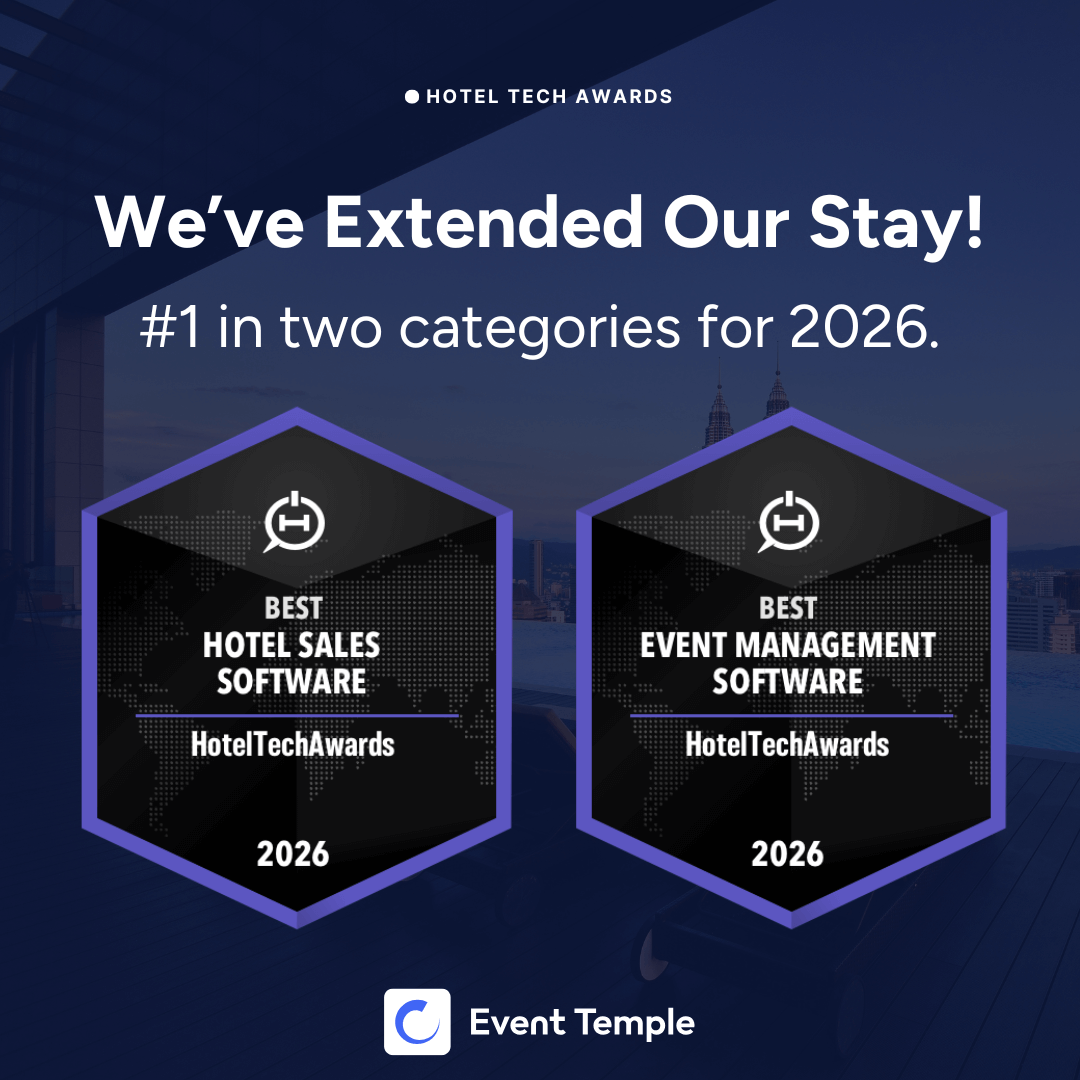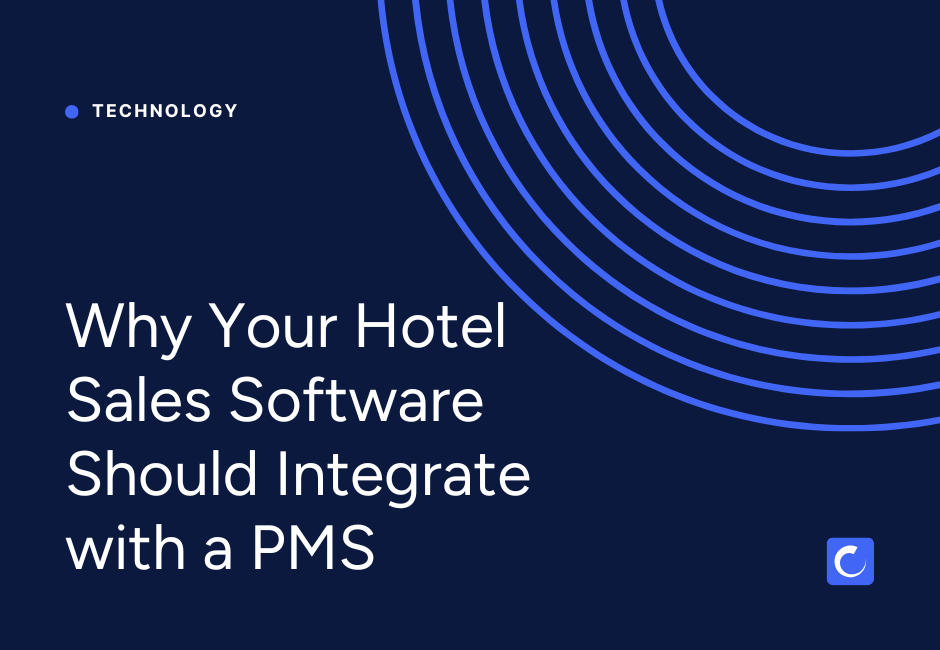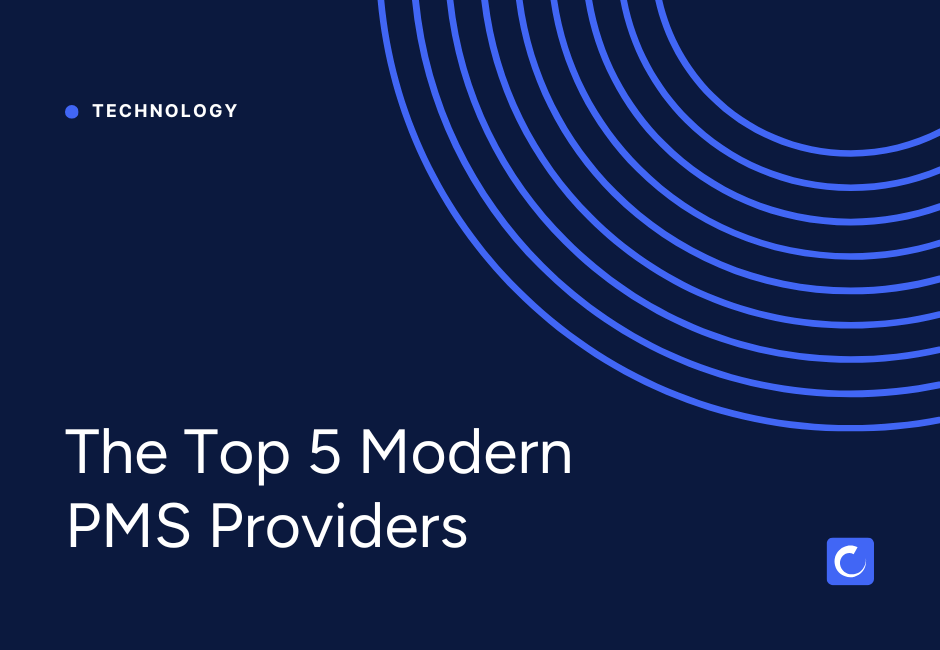.jpg)
Ever wondered how some hotels seem to know exactly what you need, almost before you do? Whether it’s ensuring your room has that perfect view or greeting you with a welcome drink you mentioned liking months ago, the secret often lies in their technology.
Advanced tools like Customer Relationship Management (CRM) systems, strategic hotel sales tools, and efficient Banquet Event Order (BEO) templates from Hotel Software Solutions like Event Temple are modernizing the hospitality industry. These innovations not only streamline operations but also enhance every aspect of the guest experience, establishing new benchmarks in hospitality that make every stay memorable.
1. Start with Elevating Guest Experiences with a CRM build for Hotels
How exactly do hotels manage intricate details like remembering Mrs. Thompson prefers two extra pillows or Mr. Lee’s request for a room away from the elevator? The answer lies in robust Hotel CRM systems. These systems act as a repository of guest preferences, enabling hotels to offer a personalized touch on a grand scale, making each guest feel uniquely appreciated.
Key Benefits of Hotel CRM Systems:
- Everything in one place: Create a streamlined and repeatable sales process that makes it easier for you to schedule meetings, track inquiries and get proposals accepted, all in one place.
- Efficient Lead Tracking and Outreach: You will know you have found a great CRM tool if it feeds inquiries straight into your sales CRM by using customized website forms and email forwarding. Pick one that easily tracks all of your sales activities and tasks from phone calls to drop ins, emails, proposals, contact history and more.
- Enhanced Record Maintenance: Never worry about losing valuable sales data. A great Hotel CRM will have a centralized database that will hold all of your property’s critical sales and booking information so that you can access it anytime, from anywhere.
Implementing a Hotel CRM: A Step-by-Step Guide
- Assess Compatibility: Verify the CRM integrates with your existing tech stack.
- Evaluate Scalability: Ensure the CRM can grow with your hotel's needs.
- Check Customization Options: Confirm CRM customization fits your specific requirements.
- Technical Setup: Collaborate with the CRM provider for proper installation.
- System Integration: Integrate the CRM with existing systems for seamless data flow.
- Data Migration: Safely transfer existing guest data into the new CRM.
- Initial Training Sessions: Train staff on basic CRM functionalities.
- Advanced Training for Key Staff: Provide in-depth training on complex features.
- Ongoing Support Setup: Arrange for continuous training and support.
- Guest Data Capture: Encourage regular updating and capturing of guest data.
- Utilize Personalized Experiences: Implement CRM data for tailored guest interactions.
- Monitor and Optimize: Regularly evaluate the CRM's impact and optimize.
- Feedback Loop: Establish continuous feedback with staff on CRM usage.
- Performance Review: Assess how the CRM affects guest satisfaction and operations.
- Update and Upgrade: Keep the CRM updated with the latest features and improvements.
This checklist ensures a thorough approach to CRM implementation, maximizing its benefits for enhancing guest experience and operational efficiency.

2. Maximizing Revenue with Strategic Hotel Sales Tools
Mastering revenue management through strategic Hotel sales tools that automate pricing and distribution is key to adjusting hotel room rates adeptly during peak seasons. These tools ensure that hotels optimize occupancy and maximize revenue through dynamic pricing.
Advantages of Hotel Sales Tools:
- Adaptive Pricing: Automatically adjusts rates based on market demand and external factors like local events, helping maximize revenue during peak demand.
- Streamlined Operations: Integrates seamlessly with CRM and PMS systems, centralizing data and reducing manual entry errors.
- Enhanced Forecasting: Utilizes historical data and predictive analytics to forecast future demand, aiding in more accurate and strategic decision-making.
- Improved Distribution: Manages and synchronizes inventory across multiple sales channels, preventing overbooking and optimizing room availability.
- Customer Insights: Gathers and analyzes customer behavior, providing valuable insights that can inform personalized marketing strategies.
Key Considerations When Evaluating Hotel Sales Tools:
- Functionality: Check for comprehensive real-time analytics and seamless integration with existing systems like CRMs and PMSs.
- Automation: Choose tools that automate essential tasks such as rate adjustments and report generation to minimize errors and operational costs.
- Customization: Ensure the tool can be tailored to meet specific operational needs and preferences.
- Scalability: The tool should be able to accommodate growth, managing more data and features as your hotel expands.
- User Experience: Look for a user-friendly interface that simplifies training and daily operations.
- Support and Training: Opt for providers that offer robust customer support and training to ensure you maximize the tool’s potential.
- Security and Compliance: Verify that the tool adheres to international security standards and data protection regulations to safeguard guest information.
Selecting the right hotel sales tool involves balancing these factors to find a solution that not only enhances current operations but also positions your hotel for future success.
3. Streamlining Event Management with Banquet Event Order (BEO) Templates
Banquet Event Orders (BEOs) are indispensable tools in event management, acting as blueprints that guide every stage of event planning and execution. A banquet event order is a comprehensive document that outlines every single detail of an event being held at your hotel, restaurant or event venue. Your BEO should be the only reference point needed to successfully execute a given event and as a result, it should be detailed and thorough.
Importance of BEOs in Venue Management:
- Detailed Coordination: BEOs provide explicit instructions and structured timelines for all departments involved—from catering to audio-visuals and room setups. This ensures that every team member knows their responsibilities and the exact timing for each task, facilitating a coordinated effort that enhances operational efficiency.
- Enhanced Guest Experience: By meticulously planning every aspect of an event, including guest dietary preferences and specific timing for segments, BEOs help prevent any service hitches that could impact the guest experience. This attention to detail ensures that events run smoothly and guests leave satisfied.
Crafting Effective BEOs:
- Comprehensive Detailing: An effective BEO should encompass all necessary information:some text
- Guest Information: Names, contact details, and any VIP statuses.
- Event Overview: Type of event, expected number of guests, and specific client requests.
- Catering Needs: Detailed menu including all food and beverage requirements, highlighting any allergies or dietary restrictions.
- Setup Requirements: Layouts for seating, decoration specifics, and any special arrangements for equipment.
- Timeline: Detailed schedule of the event, including setup and breakdown times, as well as the timing for each part of the event.
- Vendor Information: Contact details for all external suppliers and their roles.
- Emergency Plans: Contingency strategies for unexpected issues, like weather problems or technical failures.

Utilizing BEO Templates:
Using a well-designed BEO template can simplify the creation of these documents, ensuring consistency across events and saving time in the planning process. Templates typically include standardized sections that can be customized for each event, making it easier to ensure that no critical details are overlooked.
- Accessibility: Ensure the BEO template is accessible and understandable to all team members who need to use or reference it.
- Customization: Although templates provide a framework, they should be flexible enough to accommodate the unique aspects of different events.
- Integration: BEOs should integrate easily with other management tools used by the venue, such as digital calendars and project management software, to streamline all aspects of event organization.
Great news for those involved in managing hotel and event operations! Event Temple offers a comprehensive free BEO template pack that is designed to cater to a variety of needs, whether you're managing a simple hotel event, a complex conference, a restaurant, or a wedding venue. Each template in the pack is tailored to help streamline your event planning process and ensure nothing gets missed.
Here’s what you can expect in the BEO Template Pack:
- Simple Hotel BEO: Ideal for straightforward hotel events, focusing on basic needs and setups.
- Complex Hotel BEO: Designed for more intricate events with multiple components and requirements.
- Restaurant BEO: Perfect for dining events, accommodating various guest preferences and dining arrangements.
- Wedding/Event Venue BEO: Tailored for the unique demands of weddings and special venue events, covering all the details from decor to guest accommodations.
- Editable Google Docs Templates: All templates are provided in Google Docs format, making them easily accessible and editable online, allowing for real-time collaboration and updates.
These templates are a valuable resource for ensuring that every event runs smoothly and every detail is accounted for. By utilizing these BEOs, you can enhance guest satisfaction and operational efficiency across different types of events. To grab your free detailed BEO template pack and start optimizing your event planning today, visit Free BEO Template Pack.
Conclusion
Adopting advanced technologies such as CRM systems, sales tools, and venue management software is crucial as the hospitality industry evolves. These tools enhance operational efficiency and elevate the guest experience, helping hotels to exceed expectations and secure repeat business. Also, as we discussed, BEO’s are crucial for any event operations for a hotel. By leveraging these innovative solutions, hotels position themselves for sustained success, creating unforgettable experiences that make guests eager to return. The future of hospitality lies in embracing these transformative tools, propelling hotels towards excellence and innovation in every guest interaction.



